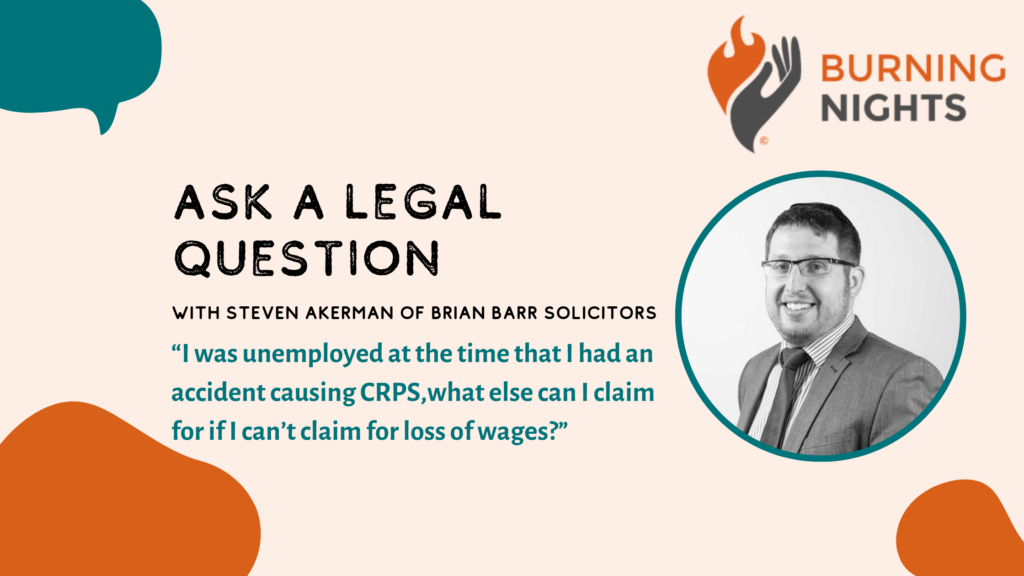After slipping on a wet floor and injuring herself, a nurse developed severe Complex Regional Pain Syndrome (CRPS), a condition which is known for causing a plethora of extremely painful symptoms. Due to the condition having such a negative impact on her life in every capacity, Brian Barr Solicitors helped her to secure £50,000 in complex regional pain syndrome compensation.
How the accident caused CRPS to develop
Kathleen Ann McLeish, a 60-year-old nurse from Edinburgh, slipped on a wet floor, fell and broke her wrist in 2011 while working as an emergency nurse practitioner. She was working within the Emergency Department of the Edinburgh Royal Infirmary at the time of the accident, and there were no signs to indicate that the floor was wet.
After the initial accident took place, Kathleen momentarily fainted in the resuscitation room and was immediately sent to the A&E department where, after receiving X-rays, a black slab was added to her fractured wrist. She was sent home with painkillers, and two weeks later, she was admitted to hospital and underwent surgery to have an external fixation placed on her wrist and lower arm. She was expected to make a full recovery, but soon after the surgery her fingers became swollen and extremely painful. Although no infection was discovered by professionals, Kathleen was prescribed antibiotics.
Symptoms of CRPS
Six weeks later, the fixation was removed from Kathleen’s wrist and lower arm, and she began to attend physiotherapy on a weekly basis. Although a reasonable degree of movement returned to her wrist and fingers, she still felt stiffness, restricted movement, and swelling in her hand and wrist. By September the same year, three months after the initial fall took place, Kathleen was continuing to experience a feeling of tightness around her wrist, as well as considerable swelling in the fingers on her left hand, intermittent colour changes, and occasional shooting pains.
Making a diagnosis of CRPS
Due to her persistent symptoms, she consulted her doctor who then diagnosed her with complex regional pain syndrome in her left hand, which was directly caused by the fracture she obtained from the initial fall. CRPS is a poorly understood condition which affects approximately 1 in 3,800 UK people each year and is usually caused by an accident or trauma. It typically affects the limbs and is known as one of the most painful of all medical problems, often causing extreme sensitivity, prolonged pain, stiffness and cognitive impairment.
The impact of CRPS on Kathleen’s life
As a sufferer, Kathleen’s life has changed in a negative way. The symptoms she experiences prevent her from completing many day-to-day tasks, often leaving her reliant on assistance from others.
She has had to make many lifestyle changes in order to maintain her independence. She has had to adjust the clothes she wears, and only wears clothing with zips opposed to buttons as she struggles to dress herself independently. In addition to this, Kathleen has had to employ a gardener due to the severe pain she experiences. She has also had to give up swimming and playing the piano, both of which are hobbies she enjoyed taking part in.
Her confidence at work has been affected and, due to the fact she feels socially isolated from her friends and family, she has become depressed, has put on weight, and has had to be signed off work in order to recover.
Making a successful compensation claim
Due to the way Kathleen’s life has been affected, and the fact that no verbal, signed, or visible warning was given to her to confirm that the floor was wet, the Court ruled the NHS responsible. Kathleen was issued a sum of £50,000 in complex regional pain syndrome compensation – a sum which should help to improve her quality of life and ease some of the burdens she feels as someone who suffers from CRPS.
Contact us
If you suffer from CRPS as a result of an accident or injury that wasn’t your fault, you could be entitled to compensation, just like Kathleen. If you suspect this may be the case, get in touch with our expert team of lawyers by calling or filling in our online contact form, and discuss your case in more detail.
We do not endorse any research, studies or sources mentioned within our blogs and comments. Furthermore, we do not endorse any medical advice provided, and would strongly recommend anyone seeking medical advice to contact their local healthcare provider.

















